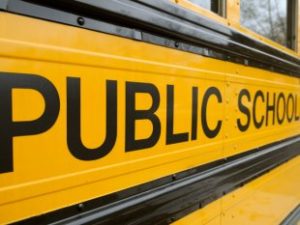
My experience working with schools has left me with some time-tested wisdom that I think is worth passing on. I’ve learned that there are ways to understand, connect with, build alliances with, and support public school teachers and administrators that each of us can and must implement in our ministries.
One specific strategy is to do all we can to support those who work in our public schools. Maybe you’re one of those youth workers who knows just how thankless a job –humanly speaking – youth ministry really is. If so, welcome to the world of public education. We can start by thanking those in our community who have chosen to spend several hours a day teaching our kids. Many of them are tired, worn out, and weary from constant criticism and the difficulties of working with kids in a rapidly changing culture. Their job is incredibly challenging. Think about it. . . not only do they have to stay up-to-date on the latest educational developments, but they have to be culturally-savvy as well. The culture of their students is changing at breakneck speed.
Once you’ve thanked them, offer to come alongside with no agenda other than to be an encouragement and support. Assume a Christ-like posture of grace, humility, integrity, excellence, and servanthood. Then offer to help out as a volunteer in the classroom, on the playground, in the lunchroom, or on the sidelines. Over the years, our local school district has eagerly accepted my willingness to help out by using me as a classroom aide, reading helper, field-trip chaperone, recess aide, public address announcer, game-filmer, etc. The relationships built over the years have resulted in give-and-take, with school officials asking me for advice regarding the school’s changing culture and how to respond.
As a youth worker, you are uniquely positioned to do the same, passing on helpful information and resources that will assist educators and parents as they work together to lead kids to become positive and productive members of society both now and in the future. Perhaps you can even serve to provide in-service education for the school staff on a unique aspect of today’s youth culture and student experience. But don’t ever forget: respect the school’s boundaries and don’t abuse the trust you’ve been given.
To get you started on this journey of partnering with and supporting your public school district, we’ve developed some Free downloads that feature information and advice on one of the most pressing matters parents and educators are facing in today’s world: social media and technology. Parents and educators regularly come to CPYU for help in navigating the emergence of life on the digital frontier. It’s for that reason that we began our Digital Kids Initiative, which now features these non-sectarian public school resources. Here’s a list of and links to those resources. . . and be sure to give them a look and pass them on as a way to partner with and support your local educators. . .
A Parents’ Guide to Cyberbullying
Primer on Electronic Addiction
Texting While Driving Fact Sheet
Family Digital Covenant of Conduct